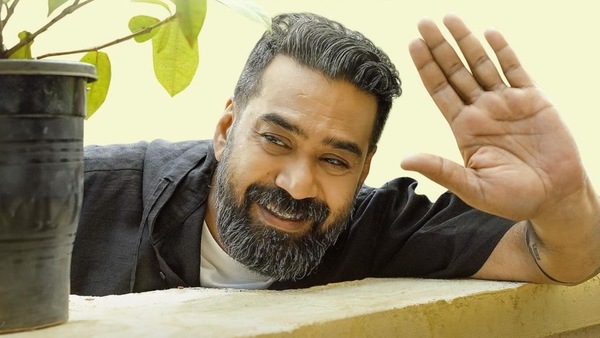Biju Menon – ‘I have turned down offers from OTT platforms’ | Exclusive
In an interview with OTTplay, the actor discusses his process of selecting a script and the reasons behind his preference for commercially viable movies.

Last Updated: 08.23 AM, Jun 22, 2024
Malayalis admire Biju Menon for his versatility in carrying off any role with grace. Every time his film is released on a large screen, people look forward to seeing his nuanced performance. On June 21, his most recent movie, Nadanna Sambhavam, was released in theatres.
In an interview with OTTplay, the actor discusses his process of selecting a script and the reasons behind his preference for commercially viable movies.
You recently celebrated 30 years in this industry. What aspect of a script, at this point, inspires or drives you to commit yourself to a project?
The narrative's strength and the role I will be playing are the most important factors. I wonder if there is anything I can do to perform any better than I have in the past throughout my career.
Actors from different film industries are collaborating; you have also starred in Kannada, Tamil, and Telugu movies. Did you consciously decide at some point to stop being a part of films in other languages?
I used to play the main antagonist or negative roles in my multilingual film roles. All I had to do was act like a villain and pick fights. It became boring to me after a while. My comfort zone and safe haven is Malayalam. All of these languages are still making offers to me, especially after Ayyappanum Koshiyum. Mostly because of my obligations here, I decline.
You have starred in offbeat films over the years that have received a lot of praise, particularly for your performance. Have you ever experienced the weight of expectations?
Furthermore, I started to feel responsible. Following each movie, the public expressed gratitude and support, and it became my duty as an actor to live up to their expectations. I keep thinking about it even as I choose which script to work on.
In the meantime, I owe producers and directors the same obligation. I love working on films like Aarkkariyam, but even when we receive a tonne of praise, these kinds of films often fail to turn out well for the producers. As a result, I also concentrate on selecting projects that will be profitable and appeal to viewers in order to bring them to theatres.
Actors are moving to opportunities on digital platforms these days as well. Do you get offers from OTT space as well?
Indeed! I usually turn them down because I personally want to see my movie in theatres and be enjoyed by audiences. Without a doubt, the digital sphere has given many more opportunities. In the early days of my career, there were very few channels available for us to market our films. Thanks to this development, filmmakers can now present their work to a wider audience, regardless of language barriers.
Also Read: Varshangalkku Shesham star Aju Varghese – ‘I am not a big fan of working on sequels’ | Exclusive
Malayalam is currently experiencing a winning streak that is being discussed globally. What are your thoughts on it?
Seeing recognition for our industry's efforts makes me very happy. As a Malayalam actor, I am proud when I hear people on my sets discussing different films. All of these films are deserving of praise for the subjects they tackle. Since many are getting opportunities from outside our industry and getting the recognition they deserve, it is also advantageous for everyone in the industry.
Because your father is a police officer, you have had the opportunity to spend a lot of time in the police camp. Have any of your police characters been impacted by your interactions or acquaintances there?
The majority of the police characters in our films used to have exaggerated mannerisms, but as realistic roles began to appear, I was able to relate to them because of some of the people I had met in the camp. Unknowingly, my personal acquaintance with numerous police officers may have influenced some of my police personas. I did not utilise my father's reference for any of the cop roles I played; it was only for Aarkkariyam.
Although Meghamalhar, your 2001 film, did not have a great box office run when it was first released, it was highly discussed on social media recently. Did you know, when you were in the film, that the topic it addressed was far ahead of its time?
The movie was first intended to be a television series. Those were days when we did not have the opportunity to give the movie the exposure it needed, and it showed in the box office performance. Both me and Samyuktha were young and single at the time, so we were not particularly aware of the depth of the subject. Nonetheless, I completely understand the film's intensity and the characters' multiple layers now.
Recently, there has been a lot of discussion about the significance of film reviews. How do you feel about it?
I think constructive criticism is always beneficial for any movie. Everyone is free to voice their opinions about any work, but as someone who works in the industry, I am aware of the challenges involved in getting a movie onto a big screen. It is disappointing to see producers who have invested so much suffering as a result of needless criticism. It would be good to see some humane regard for the labour of the diligent.

 Premium
Premium